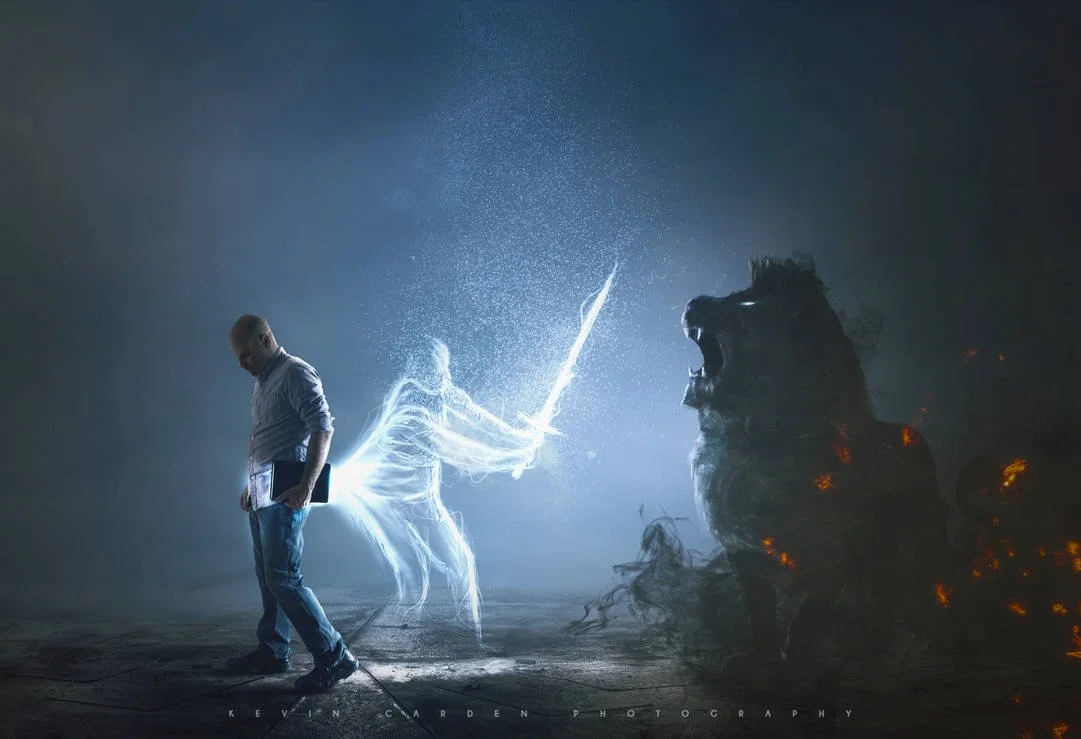Some pilgrims never make it out of the Valley of the Shadow of Death. It becomes more than a metaphor. It becomes a martyrdom. Christian stumbles across the ‘blood, bones, ashes and mangled bodies of … pilgrims that had gone this way formerly’. Remember that Bunyan is writing Pilgrim’s Progress in prison. He is experiencing first hand the realities of being persecuted for his faith, and so the questions of persecution and martyrdom are uppermost in his mind, as are the encouragement and inspiration a pilgrim can draw from the faithfulness of others in the midst of such suffering. We’ll experience something of this encouragement and inspiration ourselves at our Open Doors / Global Church weekend in September. But thinking about the experience of the Church in England, Bunyan - from the perspective of the 1600s - paints initially Paganism and subsequently Roman Catholicism (including insofar as it had ‘infected’ the Anglican church) as chief amongst the causes of suffering, and indeed martyrdom, for English Christians. You may feel this is a somewhat jaundiced view, and perhaps an unworthy episode in an otherwise great book. But bear in mind the experience of many Christians in that generation, that Foxe’s Book of Martyrs was standard reading for Christians of the day (detailing the persecution suffered by the Church during the Reformation), and that Bunyan had fought during the Civil War(s) in which the religion of politics and the politics of religion had played no small part.
It is no accident that it is at this point in the narrative that Christian connects with Faithful. Even his introduction to Faithful is instructive as Bunyan warns against the danger of competitiveness and pride creeping into our discipleship. Pride is a recurring theme in Christian’s pilgrimage. It was Pride that had caused him to slip as he went down into the Valley of Humiliation; and Pride had been one of the patterns of sin Apollyon had exposed. But even in his stumbling we see God’s grace at work, for it is the occasion of Faithful’s coming to help him.
Faithful is ahead of Christian on the path, even though he left the City of Destruction after him. Bunyan is again teaching us, warning us of the dangers that lie in the Way. Many who have been Christians for many years can often feel aggrieved when other, more recent, converts seem to enjoy much more of Christ, to benefit more from the Church than they have, and to make a progress they have not. Rather than celebrating their growth, learning from their fellowship, and being inspried by their zeal, they seek to ‘prove’ they are more mature than they are, and to re-assert their privileged position over them. There is a tragedy in such an attitude, and it leads to a greater stumbling.
Ironically, Faithful explains that it was Christian’s witness, message and changed life that galvanised his own escape from their City. Indeed, Faithful has wisely learnt from the mistakes of Christian, and has avoided some of the difficulties as a result. Mind you, he’s faced some challenging characters of his own, such as Wanton, Adam from the Town of Deceit, Discontent, and Shame (who rather confusingly seeks to alleviate his own shame by shaming others whose shame is dealt with by Christ). And Faithful has also had his own bruising encounter with legalism…
No-one’s pilgrimage is the same. Whilst there is huge resonance between Faithful’s and Christian’s experience, giving them plenty to discuss on the Way, there are also points at which each pilgrim’s battles are unique to them. The temptations we face, the fears we succmb to, and the sins we struggle with are not necessarily those others will.
Nevertheless Faithful had proved, well, faithful. Even in the Valley of the Sadow of Death he knew the face of Christ shining upon him, coming to terms with death and judgement more easily than Christian. He kept on the path, and kept going forward (even at points where Christian had slept or wandered). Faithful has pressed on through his struggles with his own ongoing experience of sin, and his old, corrupt, Adamic humanity (Eph.4:22); he has resisted the temptation to turn back, or even to be shaped by his former acquaintance with ‘Pride, Arrogancy, Self-Conceit and Worldly-glory’.
But while he had missed some of Christian’s trials, he had missed some of his blessings too. Faithful, in his urgency, had missed the opportunity for refreshment and equipping at the Palace Beautiful (and likely Bunyan intends us to understand this as lying behind his dalliance with Discontent). And there is a lurking question about the urgency that drives Faithful so relentlessly. It doesn’t always seem healthy, or appropriate. Whilst we rejoice that he has missed some of the trials that overshadow the Narrow Way, we are saddened that he has missed the Beautiful Palace, and the benefits Christian enjoyed from his stay there.
Early in their conversation, Faithful and Christian reflect on Pliable, whose abandonment of his own pigrimage has had dire and tragic consequences (which should lead us to pray for those we know who have begun in the faith, but who have since discarded it). Faithful was obviously deeply affected by what he saw of Pliable’s condition, and by how Pliable was treated by others and by God. Is this what lay behind Faithful’s undiscerning determination to press on at all costs? We can learn from the mistakes of others, but let us not allow them to throw us off balance. Our pilgrimage must be shaped by the Word of God alone.
Questions to ponder:
Who in your life has acted like Faithful in your own pilgrimage, encouraging and supporting you , challenging and inspiring you? Is there an appropriate way you could thank them?
In whose pilgrimage are you acting like Faithful, encouraging and supporting, challenging and inspiring someone else? Is there a way you could be more intentional in this?






